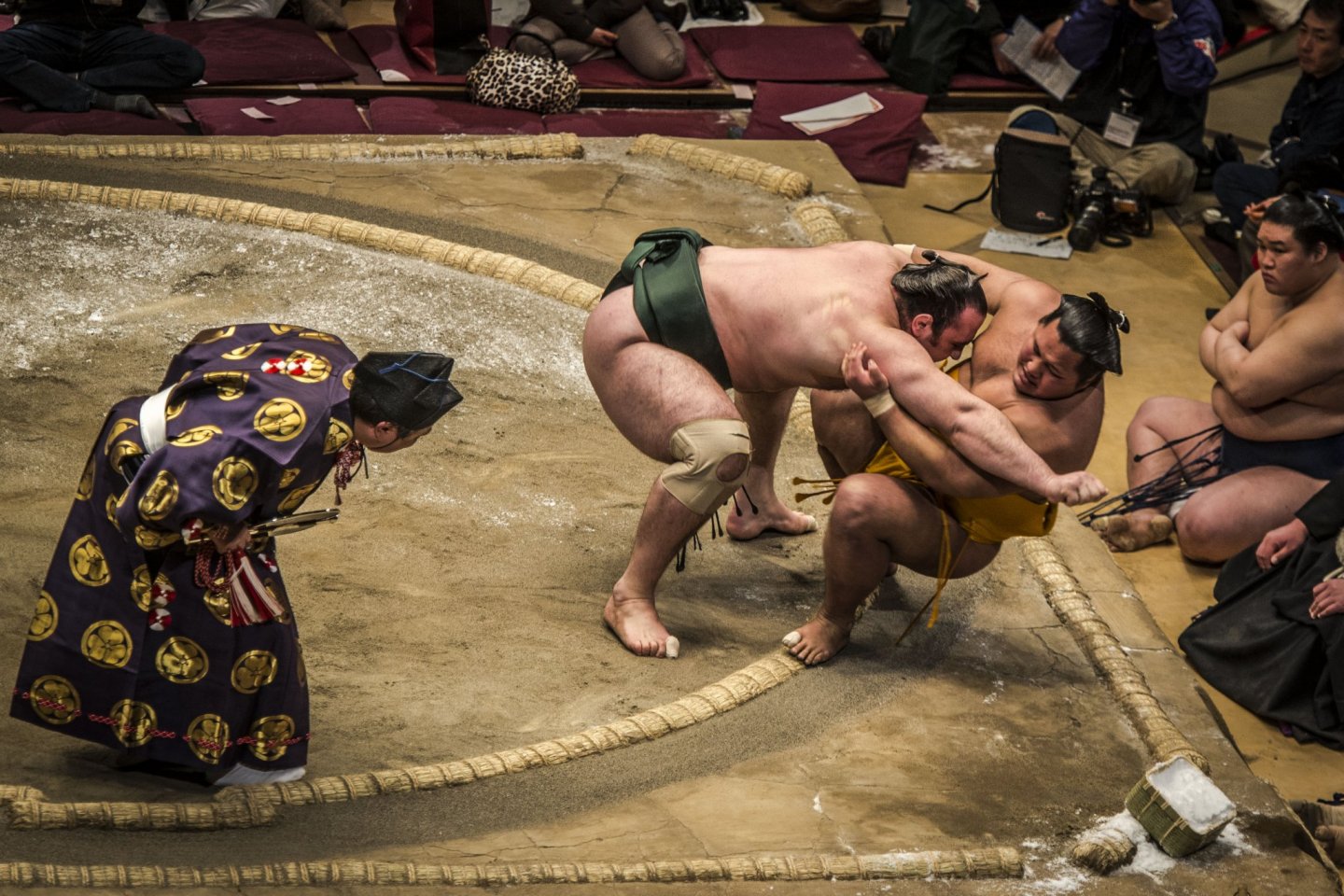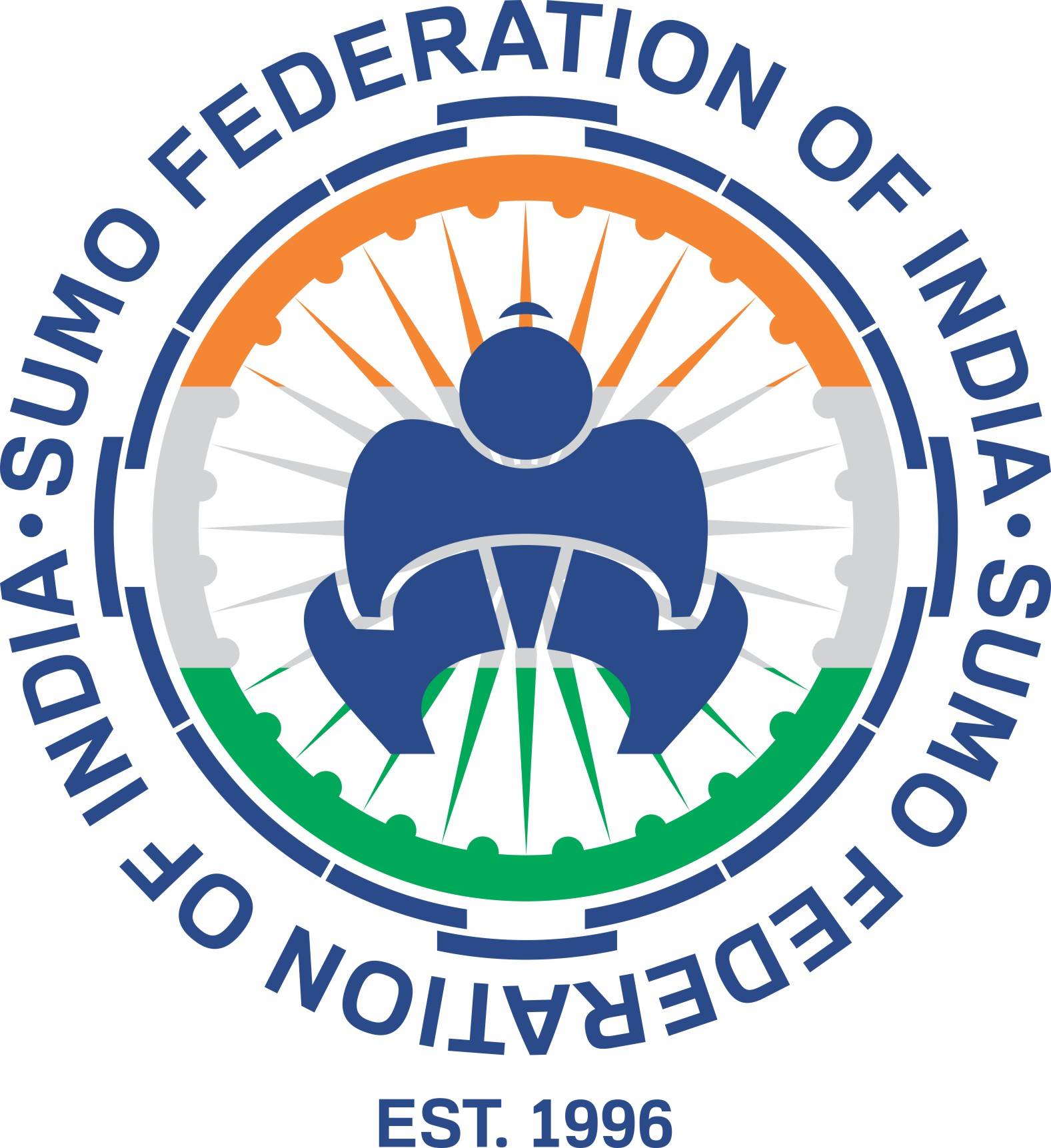Sumo (Japanese: 相撲, ) literally means ’striking one another’ and is a form of competitive full-contact wrestling. A rikishi (wrestler) attempts to force his opponent out of a circular ring (dohyō) or into touching the ground with any body part other than the soles of his feet. This is usually achieved by throwing, shoving or pushing him down.
Sumo originated in Japan, the only country where it is practiced professionally. Only in Japan it is considered the national sport. It is considered a gendai budō, which refers to modern Japanese martial arts, though sumo has a history spanning many centuries. Many ancient traditions have been preserved in sumo and even today the sport includes many ritual elements, such as the use of salt purification, from Shinto belief system.
Within Japan, life as a wrestler is highly regimented and has rules regulated by the Japan Sumo Association. Many sumo wrestlers live in communal sumo training stables, known in Japanese as heya. All aspects of their daily lives, whether meals or manner of dress, etc are dictated by strict kyara tradition. Globally, these ancient aspects are not enforced in international competitions. The game of sumo has very simple rules and just one aim inside the circle. The games are fast and the strength of the sumo wrestlers results in explosive action with bouts sometimes ending within seconds.

